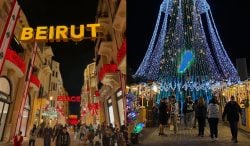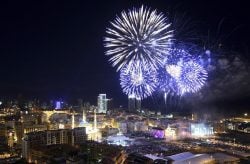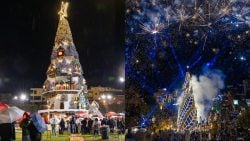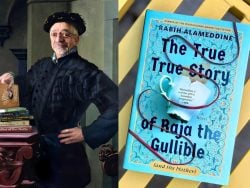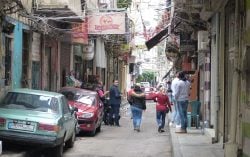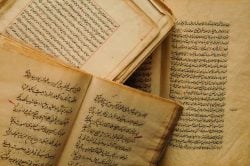An Interview With Photographer Courtney Bonneau
On Tuesday, I sat down to interview the talented photographer Courtney Bonneau and discuss her current projects, photographic journey, favorite food in Beirut, and, most importantly, Succession. Here’s how it shook out.
Bachar Bzeih: Hi, It’s great to finally meet you.
Courtney Bonneau: Nice to meet you too.
B: That’s great to hear. I think we’ll just get to it then. So for my first question, I wanted to find out more about when you first arrived to the region, and what was it that inspired you to come here?
C: It was in 2014, I was visiting friends in occupied Palestine, in Tel Aviv and I decided to take a bus to Ramallah to see for myself what was going on there. We took the journey, and drove through the checkpoints and ultimately through the separation wall. That was where the war crimes and apartheid really. became evident for me. It was the catalyst for everything I do today. I mean, imagine the daily humiliation and threats that Palestinians face: snipers in towers, they have to get up at three in the morning because you have to go to Jerusalem or Tel Aviv to work, but first you have to wait for hours at the border in a metal shed in the scorching heat or the freezing cold. And then the Israelis, they can just say ‘no, you can’t go in today’ and not let you through. It’s awful. And this didn’t really fit the image Western media had fed me. So this was really the trip that set everything in motion for me.
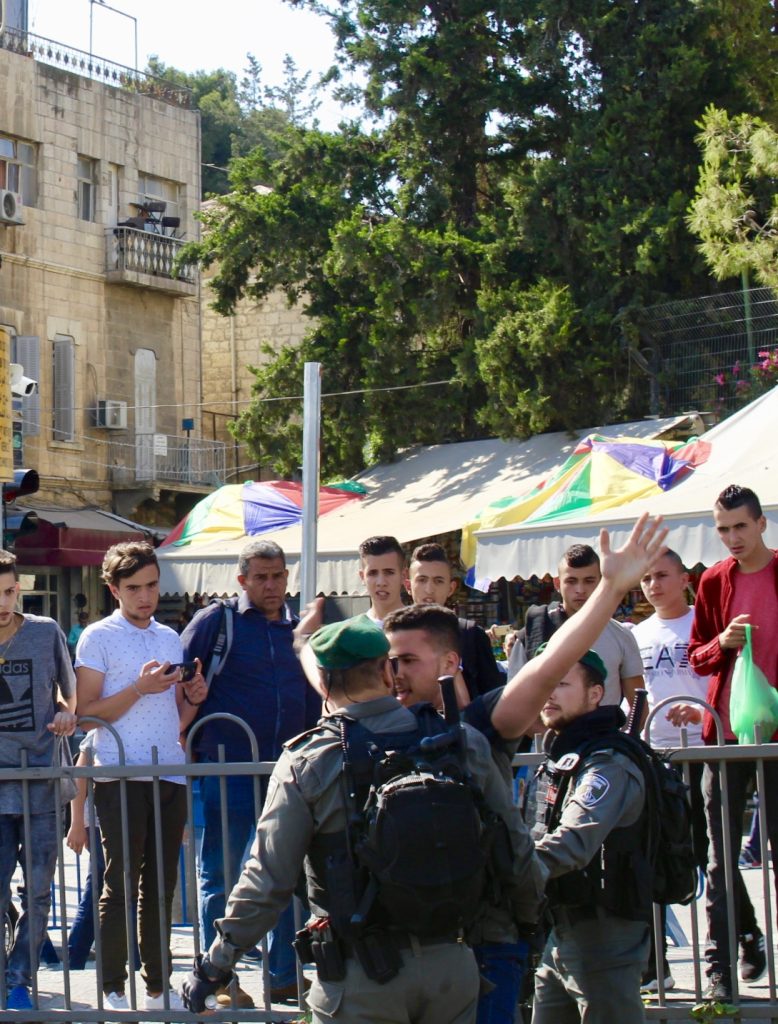
Life under occupation, Jerusalem. Photo by Courtney Bonneau
B: That is quite a way to get started, the sheer brutality of the occupation there. Are there any more stories, like these, that you’ve picked up during your journey and that have really stuck with you?
C: Each and every story I hear in the field is special in its own way. A story that’s stuck with me recently is from the Khazir camp. I’ve been working at the camp collecting the stories of former child soldiers of ISIS. They’re kind of stuck in purgatory, in limbo. They can’t go back to Mosul because their families have disowned them, they can’t go to Erbil because they could be killed. The Iraqi government is doing nothing to help or relocate these people, all the NGOs have pulled out, there’s nobody left.
There’s one guy in particular, his name is Mohammad. I’ve met him twice so far, he’s very young, around 22. He was forced to join ISIS when he was 14 years old. His father, and his brother were in the military police, and they were on a list, so ISIS said to him you can save them by joining and fighting with us. Even though he’s been acquitted for his crimes, his family disowned him, and he’s now stuck in this camp for the rest of his life. This is something that I think about often, I think about what do we owe to these people, as human beings. What do we owe someone that was a child when they were recruited into the “Caliphate?” We owe them compassion, but at the same time what does it do to a child’s brain to commit atrocities, and are they then a danger to society. There’s no way to know.
It’s sad, and the conditions in that camp are just hellish.
B: This question kind of takes us in a different direction, but how has your experience in Lebanon been? The pros, the cons, everything in between..
C: My experience in Lebanon has been equal parts happy and heartbreaking. I’ve heard Lebanon described as a ‘toxic ex that you can’t stay away from’ and while I don’t think that is 100% correct, it resonates with me. When it comes to Lebanon, I am in love. I am in love with the grace of the people, the beautiful landscapes, the kindness that I witness and experience on a daily basis. Lebanon has a lot of love to give and I’m here for it. I’m also here for the food.
B: Speaking of food, what are some of your go-to food spots in Beirut? And what are your go-to orders?
There are so many great places to choose from but I do have some favorites. I love the food at The Sage Parlor; the breakfasts and pastries are to die for. Beit Kanz is a new favorite and I go there often with friends. Slate is an old favorite; I used to sit there and edit photos during the revolution in 2019. The staff are wonderful people and the food is always fresh. Even during tough times, they were committed to the quality of their dishes.
My favorite dish in Lebanon is mograbieh and I will order it anywhere I can get it.
B: Going back to the mission behind your work, why photography? How did you come to find the camera as your primary mode of expression?
C: Honestly, I do photography because I can. I can’t draw or paint or write in a way that captures human emotion the same way that a photograph can. I think that photos and human emotion are very connected. Photos tell the truth. Photos cannot be denied. They tell a story.
B: From a more technical side, do you follow any particular photographic theories. Is there anyone who has been the inspiration for your photographic technique?
C: I don’t follow any specific theory, no. I think Steve McCurry was a master at capturing humanity. I remember being in awe of his photos when I was a kid. Right now I’m getting into drone photography and I’m super excited about that. I’ve also been doing a lot of minimalist architecture photography, which is just a side thing.
B: Have you had any difficulty with drone photography in Lebanon?
C: No, not really, the biggest hassle is that the battery dies in like 20 minutes.
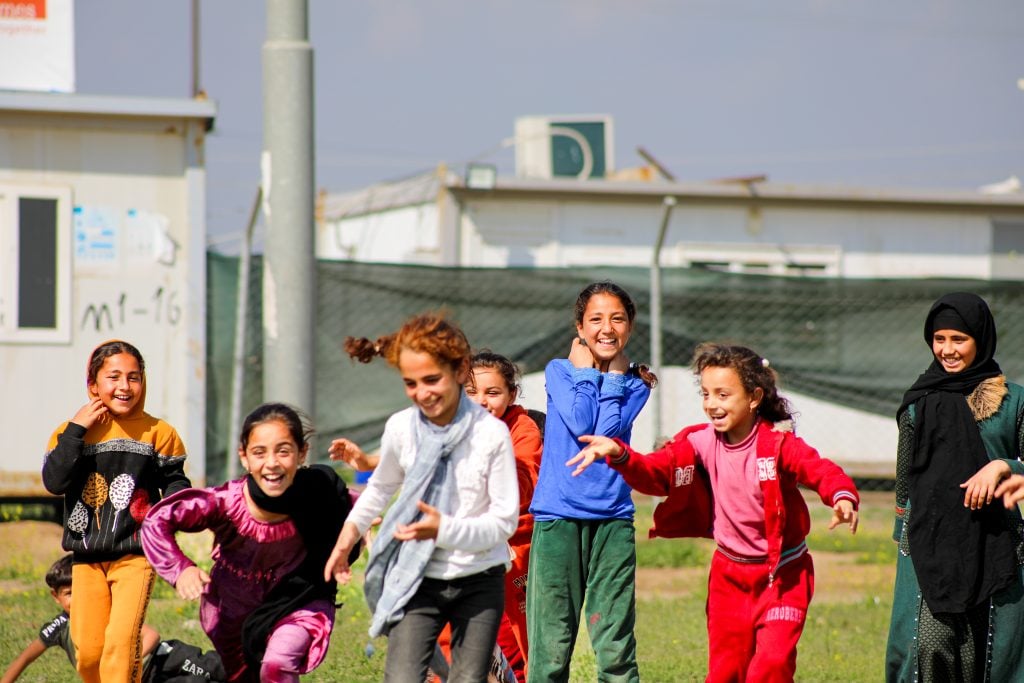
The kids of Khazir camp, Iraq. Photo by Courtney Bonneau.
B: So we know that there are particular hegemonic images of the region, and that one of your goals is to break down these media biases. How has that materialized in your photographs?
C: I didn’t really have any preconceived notions of Lebanon when I was younger. So my experience with Lebanon has been interesting because there seem to be a lot of fears regarding different areas of the country. For instance, I know people who have never in their whole lives been to Tripoli or Saida because they believe it’s dangerous and they’d believe they’d be singled out for whatever reason. To me this is crazy, it just shows the politics I think. But like when I show them pictures that I take in these places, they can’t tell where the person in the photo is from, they can’t tell them apart. Again I have to go back to the idea that we’re all human and we are taught bias and discrimination.
This is no part of this country that is dangerous. I would walk around here by myself at 3 o’clock in the morning. I feel super safe here, and in all the areas of the Middle East I’ve been, Lebanon, Syria, Iraq, Iran, Palestine.
B: What are some common reactions you get when showing your work? What are some comments that have stuck with you?
C: It depends on where I am, who I’m talking to, and where they’re from. The reactions to my work are highly individual. I can’t say that there’s a common reaction. Everyone reacts to art in their own way. One comment I received that has stuck with me is “I like how you take things that some people might not notice or may consider ugly and make them beautiful.” This is the best compliment that I have ever received.
B: You say that one of your goals is to show that at the end of the day, we are all human. Are there any examples of common humanity shining through you’d like to share?
C: I really enjoy observing people and taking photos in traffic. Regardless of where I am, it could be Los Angeles, Beirut, Mosul, Damascus, it really doesn’t matter, there seems to be something about being in the car that makes people think that other people can’t see them. There are some truly candid moments, people picking their noses or applying makeup in the rearview mirror. These are little things that we all do regardless of religion, socioeconomic status, or political affiliation. This is what makes us all human This is just one tiny example.
I remember pulling up to a Shia militia in Mosul at a traffic stop, and you know there were four guys in the back with their AKs, a driver, and a passenger. The driver was picking his nose, and there was a lady on the other side, and she was trying to get her kids to calm down. It’s the same everywhere. We’re all just fundamentally the same.
B: What TV shows are you currently watching? What are some shows that you always recommend to people?
C: Currently I’m watching Succession, obviously, with bated breath, just like everyone else. Every Monday morning I sit down with my breakfast, put my phone face-down and watch. This is my time to just sit and watch Succession. Sometimes I’ll rewatch it later in the day to see if I missed anything [laughs].
My usual recommendations are of course Succession, Euphoria, Severance, The Leftovers and a really old HBO show, one of the best written shows I’ve ever seen, with an extremely satisfying series finale, called Six Feet Under. You know it?
B: I’ve heard about it from people, they go on about how good it is, but I haven’t reached it yet. Going back to Succession, that last episode was really good. The election episode was good but this really hit a higher note for me
[SUCCESSION S4E9 SPOILERS AHEAD]
C: America Decides, I felt was really important, the tension, for me it’s very real. Like this is how it works over there. But the funeral was also very emotional, a great episode.
B: Were you happy for Roman after the last episode? I kind of was. I felt like he finally became human after that.
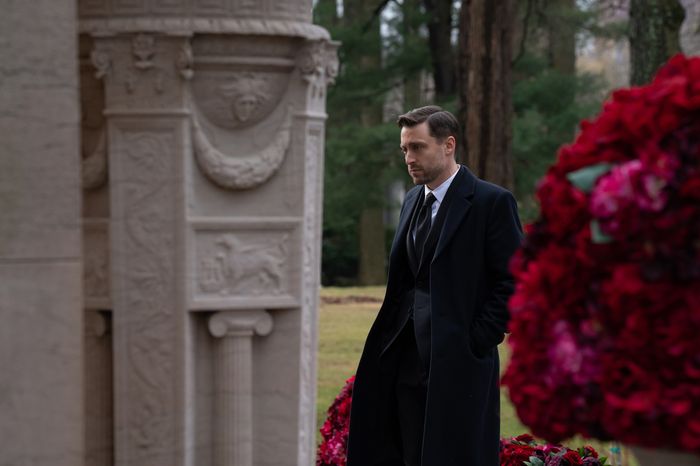
Roman Roy in Succession, Season 4 Episode 9.
C: I felt sad for Roman, I felt like what he did at the end, when he went out into the protest, he did it to hurt himself, he did it because, this is what I think, he grew up with an abusive father physically and emotionally, so his only safe place is being physically abused. So for him, it was like he was going to his safe place, where he could get beat up.
B: It really was an amazing final scene. I see what you’re saying but I also saw it as the death of Roman Roy, as he was. He accepts that his dad is dead, whilst Kendall and Shiv are fighting over the company to impress, or prove something to their dad. He’s now out of the abusive we-need-to-impress-dad loop, so that’s why I’m kind of happy for him. I hope, at least.
C: Yeah, I feel like I can’t decide until I see what the next episode shows. What I thought psychologically for him, going into that crowd, was harsh. He feels at home being abused. That’s where he gets comfort and that’s so sad.
B: Yeah, he’s my favorite character.
C: Me too, and Kieran Culkin is an amazing actor. Also, please put all of this into the interview.
B: Of course, everyone needs to see the Succession thoughts. So, to round us out, can you tell us a little about your upcoming projects? Which ones are you most excited about?
I’m having a show at Arthaus, on June 9th, 10th, and 11th. The opening is on the 9th in the evening. The show is called You Have Your Lebanon, and I Have Mine, and features some gorgeous shots and a wall of the Khazir camp with the stories of the child soldiers, and some other stuff from around the world.
I’m also working on a book about the reconstruction of Mosul, it’s an academic project that I’m really excited for. And I have a small super carefully curated show going on at The Sage Parlour, all of May and all of June, it’s some pieces of the beautiful landscapes of Lebanon, some of the most beautiful spots in Lebanon.
Outside the country, I have a show coming up in Boston in August, where I will showcase the project that I’m doing about the former child soldiers of ISIS. all proceeds from the sales go to support charity work, whether for the Khazir camp or around Lebanon, organizing fundraisers to support families in need of medication and baby formula among others.
Everyone needs help. Even if you can help just a few people, it’s still helping a few people.
B: That all sounds great, I’ll make sure to attend the opening on June 9. I encourage everyone to keep up with you on social media to stay updated on the shows and the fundraising, and yeah it’s been great chatting to you today.
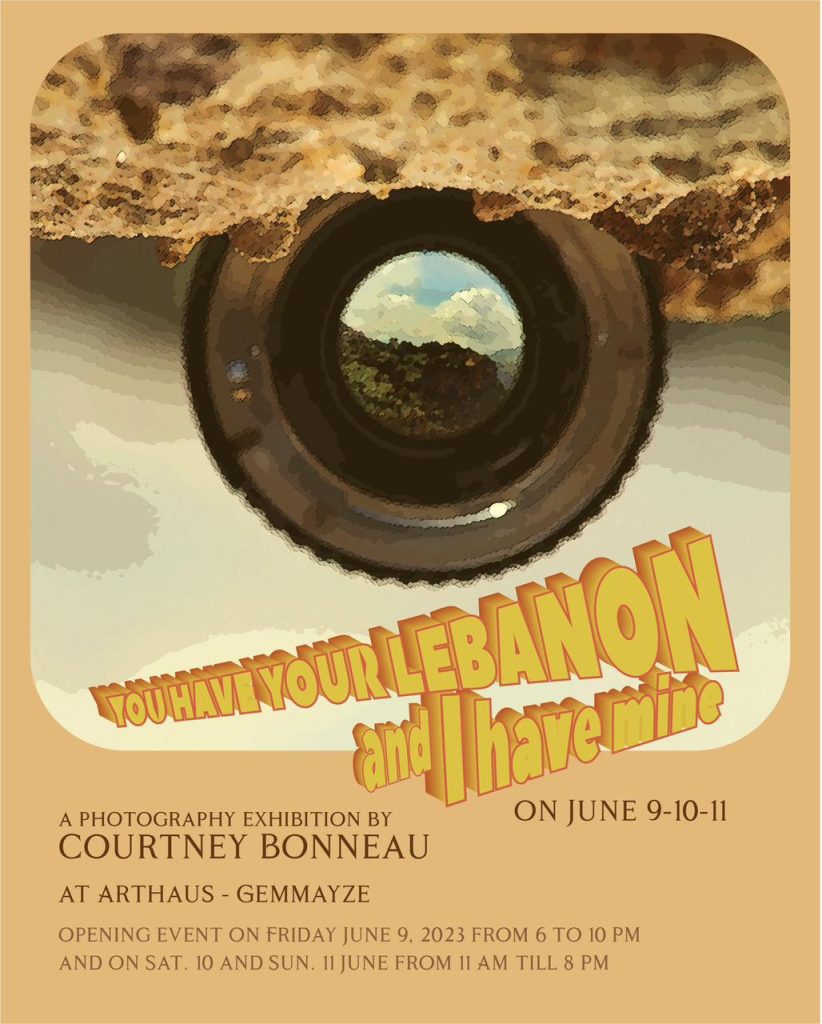
The interview has been edited for clarity. You can keep up with Courtney Bonneau through Instagram, Twitter, and her Website.
